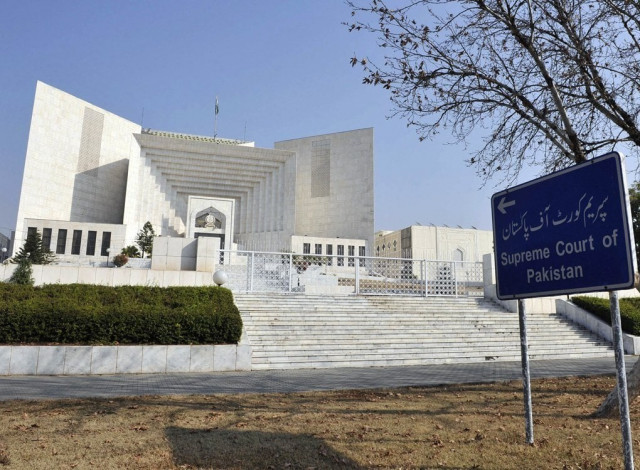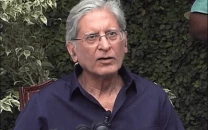SC upholds death sentence for triple murderer
Apex court has rarely upheld death sentences in last three years, says senior lawyer

The Supreme Court has upheld the death sentence of a man who murdered his brother, sister-in-law and another female relative.
"It is high time to get out of the quagmire of hyper-technical past so as to adopt a more realistic and dynamic approach to ensure an effective administration of criminal justice, a sine qua non to maintain peaceful equilibrium in the society; an inconsequential lapse or failure to observe a procedural formality without causing prejudice or handicap to an accused in his defence cannot be allowed to deny justice to the victim of the crime,” an order authored by Justice Qazi Muhammad Amin Ahmed on Tuesday read.
“Similarly, the presumption of genuineness is attached to the official acts both under article 129 (e) of the Qanun-i-Shahadat Order, 1984 as well as under Article 150 of the Constitution of the Islamic Republic of Pakistan, 1973, supreme law of the land and, thus, in the absence of a positive proof to the contrary, pleaded specifically, a delayed dispatch by itself cannot be viewed with suspicion," added the order while upholding the death sentence of the petitioner.
The three-judge bench of the apex court led by Justice Sardar Tariq Masood further noted that three innocent people, including two young women, were killed with repeated gunshots, two in the safety of their home, in a manner most callous and brute, thus, the wage settled is conscionable in circumstances.
Therefore, the scales are in balance and no interference is called for, resulting in the failure of the petition and the declining of the leave, read the order.
According to the facts of the case, 50-year-old Muhammad Irfan, along with his 45-year-old wife Rafia, was visiting Khan Muhammad accompanied by his brother Fateh Muhammad at his house located in Tehsil Talagang in District Chakwal on March 12, 2009.
The petitioner, armed with a 30 caliber pistol confronted them over the denial of a piece of land by Irfan. Fateh repeatedly shot him and followed Rafia inside a room as she rushed to save herself, firing shots at her. He then left the premises and came across another relative, Halima Bibi, outside and shot her as well.
Justice Ahmed noted that an alternate plea of lesser penalty in view of omission to put motive to the accused in his examination under section 342 of the Code of Criminal Procedure, 1898 or dispatch of casings on the day of the petitioner’s arrest are the issues entirely beside the mark.
"Examination of accused under section 342 of the Code is not a dogmatic ritual involving vitiating impact; the fundamental purpose of such examination is to enable the accused to explain any circumstance appearing in the evidence against him and that may be done at any stage of inquiry or trial without previous warning and the accused is under no obligation even to respond to that; it is essentially a communication between accused and the judge," the order read.
The judgment also noted that the underlying purpose is not to take the accused by surprise; he must be aware of the accusation and material being adduced in support thereof. “The record shows that the petitioner was fully aware of the motive set up by the prosecution; his counsel specifically cross-examined the witnesses regarding the ongoing dispute,” it added.
A senior law officer told The Express Tribune that the apex court has rarely upheld death sentences in the last three years. "I remember that the SC upheld death sentence in only three cases for last three years,” he added.
In March of 2019, the Pakistan Capital Punishment Study was released wherein a detailed analysis of 310 SC capital judgments from 2010 to 2018 was carried out. The analysis showed that 74 per cent of death sentences were overturned by the apex court.
After the retirement of ex-chief justice of Pakistan Asif Saeed Khosa, a discussion has begun over the high rate of overturning death sentences in the country. One section of the legal fraternity believes that awarding of death sentence will create deterrence in the society.
On the other hand, there is pressure on the state by international community, especially the European Union, regarding the abolishment of the death sentence. Since December, 2019, no one has been executed in Pakistan.



















COMMENTS
Comments are moderated and generally will be posted if they are on-topic and not abusive.
For more information, please see our Comments FAQ